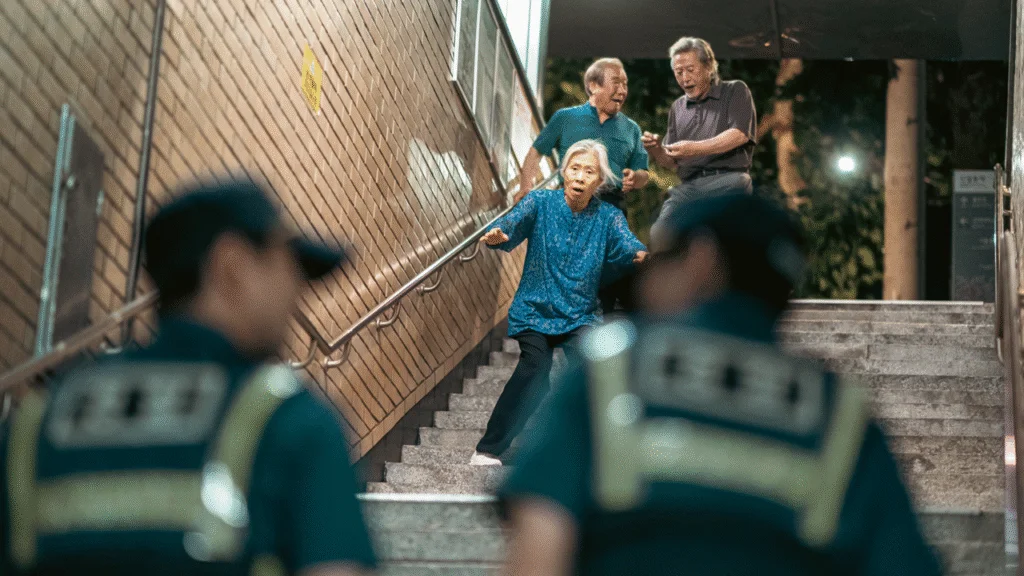
With dwindling population growth, fraying social bonds, and a surge in lifestyle diseases, what do the sunset years look like in a developed nation like South Korea? In Yang Jong-Hyun’s Tribeca-selected feature People and Meat, three impoverished elders, U-sik, Hyeon-jung, and Hwa-jin, forge an unlikely bond with one another and with premium restaurants across Seoul. The catch? They have nothing to offer, neither to each other nor to the upscale eateries they frequent. Their notorious solution: dine and dash. But will closed-circuit cameras and alert security staff eventually catch up?
Clocking in at 105 brisk minutes, People and Meat wastes no time establishing its trio and plunging them into their illicit culinary escapades. Barring an early scene, Jong-Hyun resists turning the film into a “food movie” with sensory effects. The meals are barely described or admired. Instead, these fine-dining spaces become anonymous backdrops (moods, rather than menus), where years of solitude and regret find fleeting solace in shared rebellion.
ALSO READ: Tribeca Review: ‘Happy Birthday’ burns a candle through class lines
Each of them carries a story that is more heart-wrenching than the next. The film invites viewers to draw their own emotional parallels. The elderly protagonists speak of familial abandonment and a system that has left them behind. This is a generation that spent its best years working hard, only to have their dreams and dignity quietly dissolve. Whether they are sharing clothes to pass as posh diners, struggling to connect with their grandchildren, or mourning the absence of family, Jong-Hyun paints a deeply affecting portrait of those slipping through the cracks of a society that prides itself on progress.
People and Meat confidently oscillates between tragicomedy and mischief. It occasionally tiptoes into melodrama, particularly where its conviction falters, but it never descends into preachiness. Jong-Hyun avoids assigning easy blame: there are no wicked children or cartoonish capitalists. Even the young restaurateur who eventually confronts the trio is given moral weight. This moral ambiguity, where everyone is right in their own way, is precisely where the film hits hardest.
Veterans Park Keun Hyong, Jang Yong, and Ye Su Jeong deliver finely tuned performances. Each actor brings nuance, restraint, and warmth to roles that could have easily leaned on caricature. You find yourself rooting for them, quietly wishing they never get caught.

